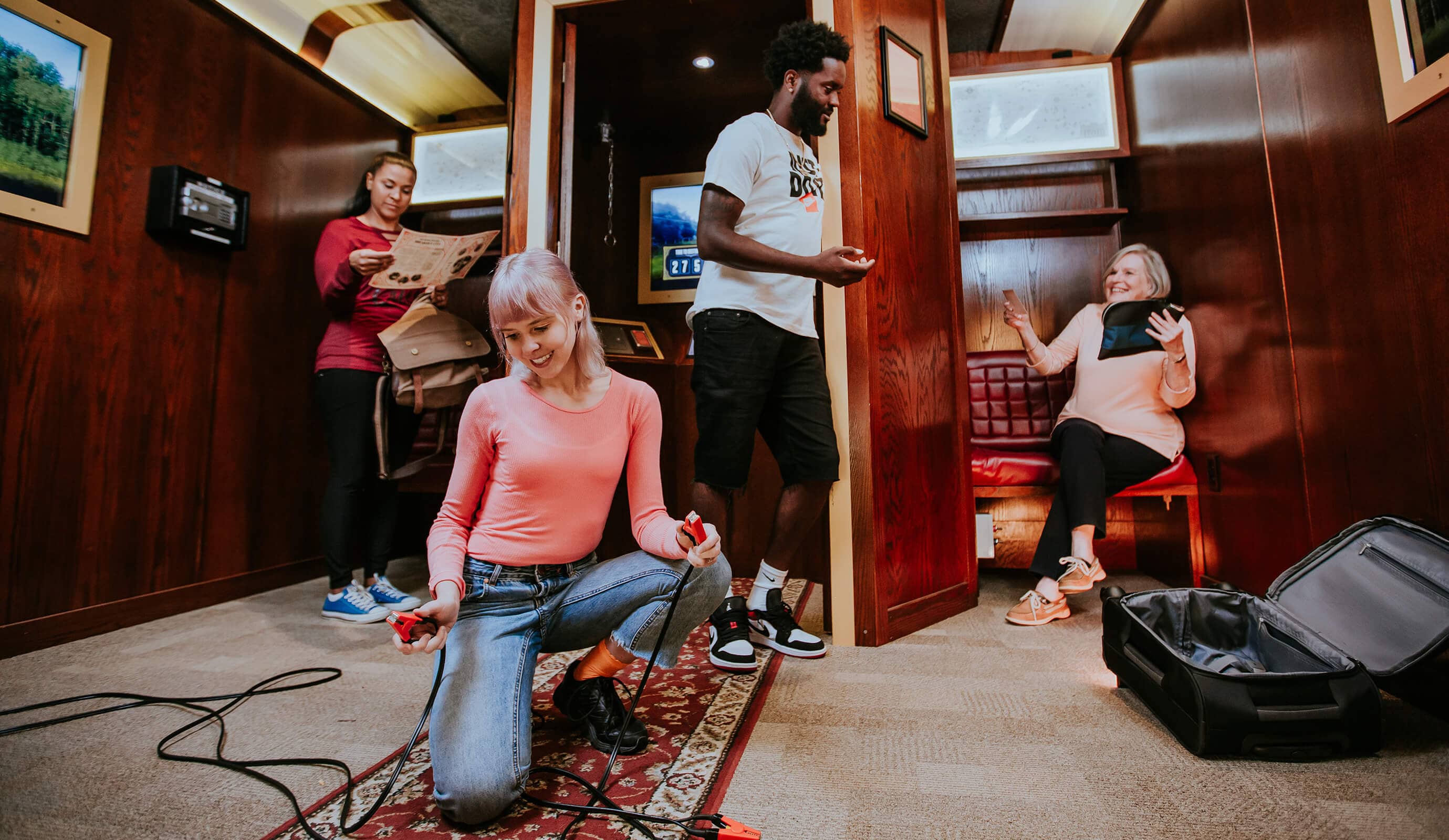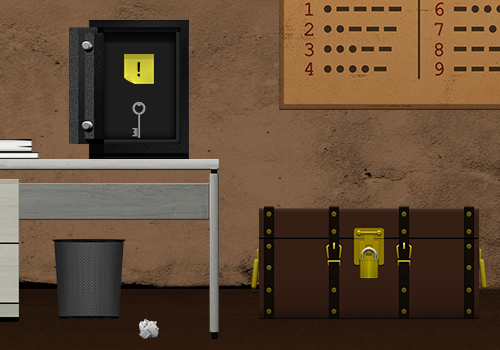Ready for a Challenge? Visit the most effective Escape Room in LA for Thrills and Enjoyable
Ready for a Challenge? Visit the most effective Escape Room in LA for Thrills and Enjoyable
Blog Article
Dive Into a Globe of Adventure and Problem-Solving in Escape Rooms
Escape areas have actually risen in appeal, offering an unique blend of experience and cognitive obstacle that captivates participants of any ages. These interactive experiences immerse players in themed atmospheres where synergy and vital reasoning are extremely important to success. From unraveling detailed historic enigmas to browsing spooky, spine-chilling circumstances, each room provides a distinctive story that tests your problem-solving acumen. Whether you're a curious beginner or an experienced lover, the appeal of these immersive challenges bids. Yet what specifically gas this attraction, and how can one optimize their experience? The solutions might surprise you.
The Rise of Escape Rooms
Escape rooms have actually seen a substantial rise in popularity over the past years, changing from specific niche amusement to a mainstream phenomenon. Coming from Japan around 2007, these interactive problem games quickly mesmerized target markets worldwide. The immersive experience of being "secured" in a space and functioning collaboratively to fix puzzles within an established duration uses an one-of-a-kind blend of adventure and cognitive difficulty.
The surge of retreat rooms can be associated to a number of factors. The interactive nature of escape spaces uses a substantial comparison to the online avoidance widespread in electronic gaming.
Getaway spaces foster partnership and interaction, motivating individuals to merge their skills and understanding (escape room). The consistent development of challenge layout and technical integration guarantees that escape rooms stay fresh and tough, adding to their continual popularity.
Types of Escape Room Styles

One prevalent style is the "Secret and Detective" category, where individuals represent investigatives charged with fixing a criminal offense or discovering a hidden reality. These areas usually feature detailed challenges and narrative-driven obstacles that require keen monitoring and rational reasoning.
Another preferred style is "Historical and Journey". Here, players might locate themselves in ancient Egypt, navigating through a pharaoh's tomb, or throughout World War II, decoding opponent messages. These motifs provide an academic spin, mixing historic facts with engaging gameplay.
For those seeking an excitement, "Scary and Paranormal" retreat rooms deliver spine-chilling experiences. Establish in haunted homes or abandoned asylums, these rooms rely on atmospheric effects and mental scares to enhance the stress.
Secret Skills for Success
Success in getaway areas pivots on a blend of crucial skills that participants have to harness to get over the diverse difficulties they will certainly come across. Similarly essential is synergy; escape rooms need a collaborative effort, where each individual's staminas are utilized to deal with various puzzles and tasks effectively.
Analytical reasoning is also essential, enabling teams to dissect complicated challenges and establish logical connections between disparate aspects within the room. Time management is an additional crucial, as the dealt with duration of getaway space experiences demands effective allowance of time to different jobs and puzzles.
Versatility and adaptability need to not be ignored. The capability to pivot approaches when preliminary strategies fail makes sure that groups can dynamically reply to advancing difficulties. Preserving a calm demeanor under pressure aids in clear thinking and protects against the onset of stress-induced mistakes. Proficiency of these skills collectively boosts the likelihood of an effective retreat.
The Psychology of Problem-Solving
Comprehending the psychology of problem-solving is critical for navigating the complex difficulties presented by getaway areas. Problem-solving is a cognitive process that entails identifying an issue, creating feasible remedies, assessing them, and after that carrying out the very best strategy. Cognitive psychologists have long studied this procedure, recognizing numerous stages such as problem identification, structuring the issue, and utilizing heuristics or formulas to locate services.
Escape rooms create an environment where individuals need to swiftly relocate via these cognitive why not look here phases under stress. The high-stakes, time-constrained nature of getaway areas can generate a state of enhanced arousal, which can either improve or hinder cognitive efficiency relying on the individual's anxiety action. The Yerkes-Dodson Regulation suggests that moderate stress levels can enhance problem-solving capabilities, whereas extreme stress can be damaging.
In addition, retreat spaces frequently need collective problem-solving, leveraging group characteristics to enhance cognitive procedures. Theories of social cognition emphasize the significance of interaction, shared mental models, and cumulative trouble depiction. Effective team effort can cause even more ingenious services and varied perspectives, highlighting the duty of cognitive and social psychology in this contact form these immersive experiences. Recognizing these psychological concepts can substantially boost one's capability to address complicated puzzles efficiently.
Tips for First-Timers
Getting started on your first escape space adventure can be both thrilling and difficult. The even more differed the skill set, the much better outfitted you'll be to take on different kinds of problems.
Interaction within the group is paramount. Share findings and understandings promptly, as one person's discovery might be the missing out on item an additional demands. Avoid tunnel vision; if a puzzle seems overwhelming, pass it on to a colleague to get a fresh perspective.
Time management is also critical. Watch on the clock and designate your time wisely. If a specific puzzle is taking in way too much time, it could be prudent to carry on and return to it later on.

Conclusion
Escape rooms supply an unique blend of experience, cognitive obstacle, and immersive narration, making them a preferred option for both amusement and ability development. The mental advantages obtained from these experiences prolong beyond the retreat area, fostering improved interpersonal abilities and cognitive functions.
The continuous development of challenge layout and technical combination ensures that retreat rooms continue to be fresh and tough, adding to their sustained appeal. - escape room los angeles
Similarly important is synergy; getaway spaces require a joint initiative, where each individual's toughness are used to tackle different puzzles and tasks effectively.
Time management is a further necessary, as the repaired period of escape space experiences demands effective allocation of time to different jobs and puzzles.
Comprehending the psychology of problem-solving is vital for browsing the intricate difficulties provided by escape areas.In addition, getaway areas usually need collaborative analytic, leveraging group dynamics to enhance cognitive procedures.
Report this page